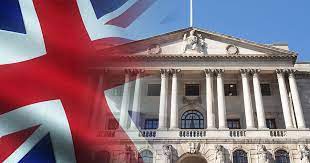The Bank of England has stated that it will take decisive action if necessary to prevent the recent spike in inflation from becoming a long-term issue, which suggests that it could deliver a rare half-percentage point increase in interest rates as early as this week.
Before making their next planned monetary policy announcement at 1100 GMT on Thursday, Governor Andrew Bailey and his colleagues will be evaluating the durability of inflation pressures. Here are some of the topics they will be looking at.
Recent measures of inflation expectations and business prices have decreased, although core pay has increased.
Due to other central banks’ recent substantial increases in borrowing costs, the BoE’s rate-setters may feel pressure to raise rates by 50 basis points despite the possibility of an economic slowdown or recession.
Expectations for inflation
In June, Britain’s key inflation indicator reached a 40-year high of 9.4%, leading some experts to increase their prediction for the inflation peak to 12%. But future inflation forecasts are often a source of equal concern for central banks.
A recent decline in consumer expectations for future price increases may give the BoE some solace.
Inflation expectations among the public, which are the metric the BoE looks at most, declined in July for the third time in four months, according to a study by the American bank Citi and pollsters YouGov, although at 3.8 percent they were still high by historical standards.
Five-year inflation forecasts dropped to their lowest level in a year, according to a separate Bank of America survey released on July 12. Last week, a gauge of financial market predictions for inflation in five to ten years reached its lowest level since April 2020, but it has since increased.
Increases in pay
High salary demands may result from high inflation expectations if they get established, which may then feed additional inflation in the future.
The rate of salary growth has accelerated, but a large portion of the rise is attributable to one-time incentives given to employees in order to entice or keep them while firms struggle to fill open positions.
In the three months leading up to May, pay growth, including bonuses, increased by 6.2 percent, trailing inflation but up from the two previous monthly readings and roughly 3 percent right before the COVID-19 pandemic.
Above its immediate pre-pandemic levels of about 3–4%, regular pay growth grew by 4.3 percent.
According to the BoE’s own poll of employers, expectations for a pay rise in the next year increased from 4.8 percent in May to 5.1 percent in June. But the study also revealed that over the next 12 months, expectations for employment declined to their lowest level in more than a year.
PRICE LISTINGS
High inflation could affect the economy indirectly through pay as well as directly if businesses continue to raise prices in response to rising costs.
The S&P Global/CIPS Purchasing Managers Index showed that in April, price increases charged by businesses increased by the greatest since records began in 1999. That pace, though, slowed down a little in May and June before cooling off dramatically in July, albeit still being strong by historical norms.
The proportion of businesses expected to raise their prices fell in early July, according to separate data from the Office for National Statistics.

















